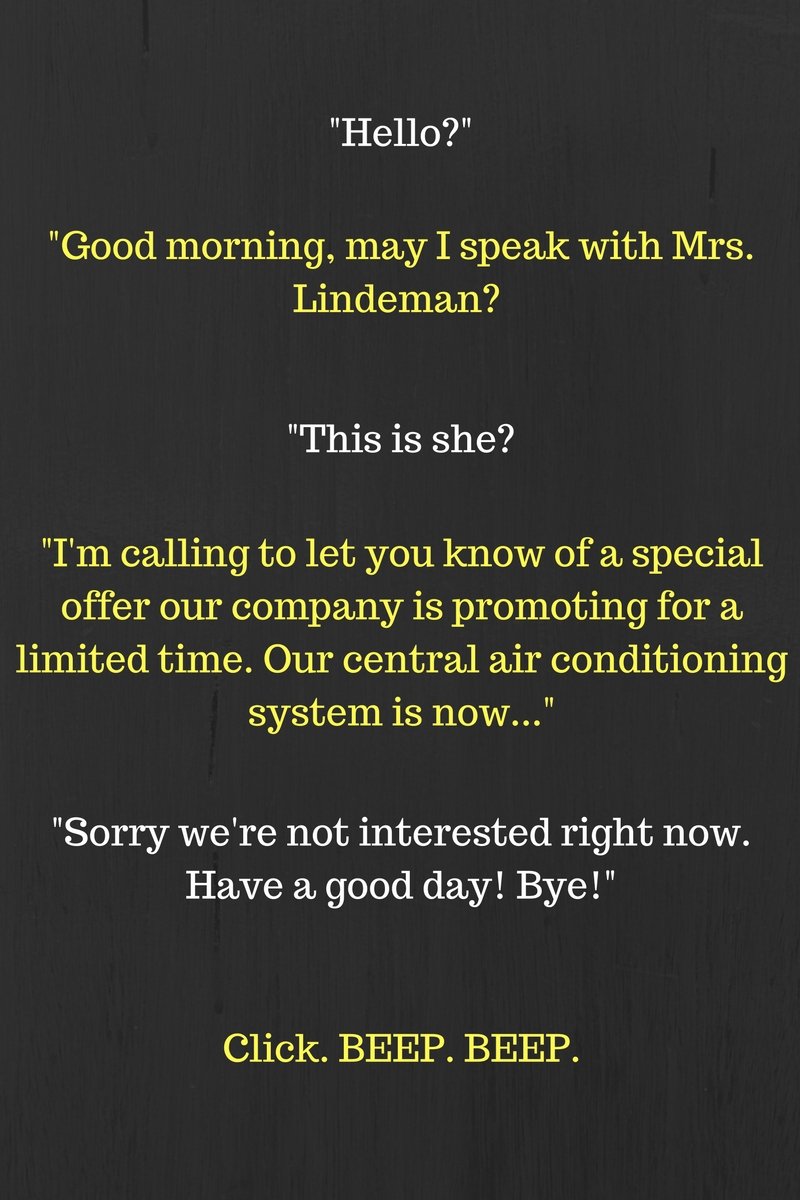
Oh no, not this...
Products, sales, salesmen—these very words are ingratiating to our ears! Almost immediately we turn our heads, jam our palms over our ears, and tune out what's next.
Thing is, it's everywhere; we can't deny it. It's in the advertisements we see online or on billboards. We hear it in the calls we receive from companies. We even sometimes get it from friends and family (really? more on that below).
Livelihoods dependent upon sales
For those of us whose income comes from sales, the challenge of encountering an audience pre-disposed to turning away can be intimidating. We say, "I don't want to sound salesy! What do I do?"
I hope to share with you a few tips I've learned over the last year concerning the matter of sales. I've had practice in dealing with an audience and how to sell while retaining my integrity.
1. It's Not About You. It's About Them.
Before we even get into the technical aspects of pitch and how to make your product appealing to your audience, we need to lay the foundation. Your attitude will permeate every word, thought, and action. And if you think your audience won't pick up on it, think again. Whatever you have to offer, keep your audience first and foremost in your mind. Be sincere. Be courteous. Listen to their stories. Listen to their needs. Fail to do this and you'll get the door slammed in your face.
I've done two book signings within the last month. What's my goal? I'm there to sell my books, right? Wrong! I'm there to connect with readers. The first words out of my mouth after I said hello (after I captured their attention) was "What books do you like to read?" It was'nt "Buy my book! It's only $18 (which readers are really happy about!)." Nor do I let the consumers feel the need to come up to me because they feel bad no one's at my table and ask what my book is about. Asking about them puts them in their comfort zone.
2. Address their Need. What's the Problem?
Find out how you can help fix their problem. If you're confident your product can do that, then explain how it can. If you realize that what you have doesn't suit their needs, point them in the right direction. If you can't give them an alternative, send them on their way with a "good day." Don't waste their time! Unless they want to talk with you some more because they think their friends might like what you have to offer, don't turn them down. Connections means networking. Networking can lead to sales.
When I encountered a reader who was looking for a new read and who enjoyed the genre I write with the elements they cherish, I pitched my story, calling out to the wants of their hearts and imaginations. Some wanted to buy but hadn't planned on buying something extra that day. I helped them out saying my books were going to be in the store for the next three months on consignment and that they could pick one up in that time frame.
3. You Need to Know Your Audience
What might sound salesy to one person, might not sound salesy to another. Let me explain. Remember I said how sometimes friends and family can sell you products? Well, they do when they talk about how something they bought changed their life drastically. They might tell you because they think it can also change yours. Not only are they appealing to your emotions (wants, needs) but you're also hearing a testimonial (personal stories are always winners).
Also if someone's trying to sell you a product and you're certain that you don't want or need it, it's going to sound salesy. Give the same pitch to someone who needs or wants the product, it's not going to sound salesy.
I came across a few people like this during my book signings. I asked them what they like to read (most of these examples are men). They said they didn't read much or only read nonfiction. Respectfully I left it at that, but still discussed what they were interested in.
4. Don't Read From a Script
This is one of the worst crimes in sales, in my opinion. I usually hear this on phone calls I get from sales companies. It literally sounds like I'm listening to a robot. Don't get me wrong, they sound kind. However, as soon as I hear that rote intonation, my interest has bombed.
Know what you want to sell inside and out; and familiarize yourself with how it can be a helpful product in several different circumstances. You'll come across as fresh, confident, and sympathetic.
I've done the same, memorized different loglines, different pitches that can be adapted in different circumstances. I'm more confident knowing the message of my book inside and out, rather than having to read from a piece of paper telling me what the message is.
What's Most Helpful?
I've made some mistakes; and so will you. You'll learn from them and grow into a confident salesperson who can help an audience with their needs and wants.
If I've missed any tips, please share. What tips have you put into practice that helped you sell well? Which tips do you find the most helpful?
